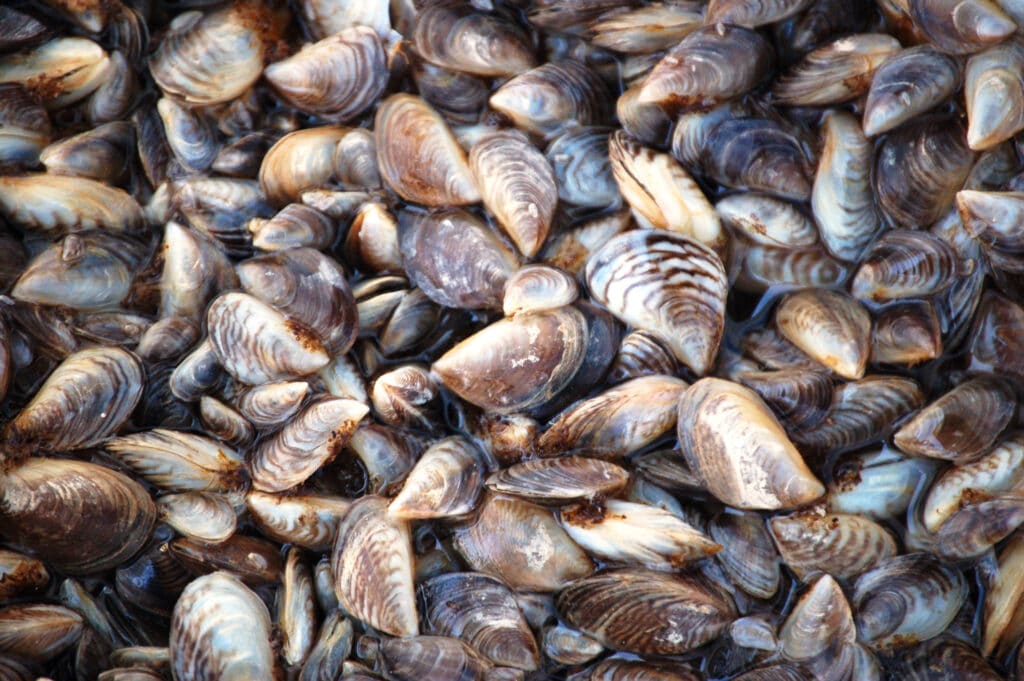
After invasive zebra mussels were found in Rainy Lake last year, the National Park Service is implementing a decontamination protocol at two portages in Voyageurs National Park. The program is intended to keep the non-native bivalves out of other lakes like Kabetogama and Namakan. Rainy Lake is now one of about four percent of lakes in Minnesota that have been infested with zebra mussels.
Starting this summer, boaters traveling over the Kettle Falls and Gold Portages will be required to take several steps to prevent the spread of invasive species. Park staff will also decontaminate boats at the two sites, beginning on May 13.
“These operational changes are being implemented to minimize the risk of human activities further transporting zebra mussels upstream within the Rainy Lake Watershed,” the Park Service says. “It is recognized that zebra mussels can significantly harm aquatic ecosystems by reducing the health and populations of native fish and native mussels, cause considerable economic loss resulting from clogged water intake systems, fouled boat motors, and reduce waterfront property values.”
From now on, boaters will only be allowed to travel into Rainy Lake on the Gold Portage, which connects Kabetogama to Black Bay in Rainy Lake, where the zebra mussels were found. No boaters will be allowed to go from Rainy into Kabetogama.
At the busy Kettle Falls Portage, boaters will be able to travel both directions, but must take steps to decontaminate their boats. When crossing from (infested) Rainy Lake to (not infested) Namakan Lake, boaters will need to drain bait containers, live wells, ballast tanks, bilge areas, and any other water holds and transport fish on ice. Park Service staff will also decontaminate boats, including canoes and kayaks, using heated water. Going from Namakan to Rainy, boaters will need to drain everything, but boat decontamination will not be required. The Park Service warned that there may be delays at the Kettle Portage as a result of the new protocol. Voyageurs National Park Association is helping fund the decontamination efforts.
In addition, any watercraft, trailer, or even a float plane, which has been on Rainy Lake must be decontaminated prior to being launched in any other park lakes.
Educational efforts at boat launches are also planned to share information about the risks of zebra mussels and other non-native species, and steps boaters should take to prevent spreading the organisms.

